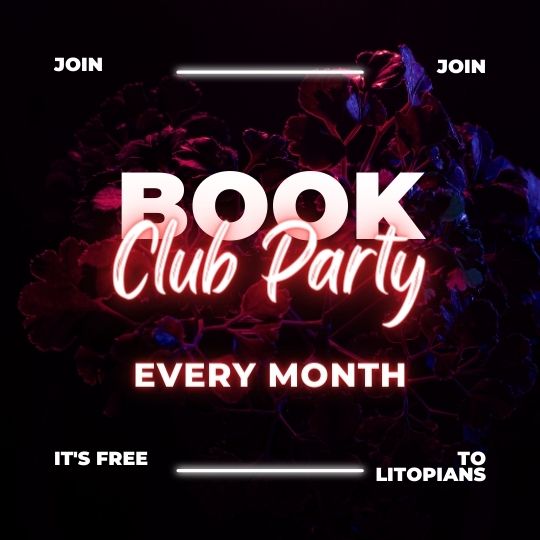David Morrell is the guy who wrote First Blood, made into "Rambo." He's written 28 novels. He was a literary professor. This part really resonated with me, just a small part about how you find your voice (IMHO):
When I taught at the University of Iowa, a student came to my office and told me he’d decided to write a detective novel. I applauded his enthusiasm and said that I looked forward to the result. Six months later, he returned with a thick manuscript. Over the next few days, I read the novel with increasing unease. What he had done, with no sense of irony, was to re-create a 1940s private-eye story. It was well written and absolutely unpublishable, I told him.
“But you said it’s well written.”
“Correct. In 1940, publishers would have jumped at it. But now it’s old-fashioned. No matter how well written, it isn’t going to attract a publisher if there are hundreds of books just like it. Good writing isn’t enough. You need a vision, a new approach. How much research did you do?”
“Research?”
“Yes, how many private-eye novels did you read? What about Black Mask magazine? Did you find any good histories of the genre?”
“Black Mask? Histories?”
It turned out that the student hadn’t read anything at all, whether fiction or fact, about private eyes. He was a fan of Humphrey Bogart detective movies. Basically, he had imagined an alternative version of the movies The Maltese Falcon and The Big Sleep without opening a book by Dashiell Hammett or Raymond Chandler. I explained that private-eye fiction had gone in all sorts of directions since the 1940s and that if he was serious about writing a book in that genre, he needed to read all its masters.
“And it wouldn’t hurt to read some nonfiction books about what real private detectives do,” I added. “Look in the Yellow Pages. Make an appointment to talk to a real investigator. Try to find out what it’s like to be an investigator. Give us a book that has details we’ve never come across before. Read Joe Gores. He’s a real private eye who writes novels about what it’s like to be a real private eye.”
The student’s jaw hung open as he lost his innocence.
“What’s the value of imitating a movie or another writer?” I asked him. “Make other writers imitate you.”
That discussion could apply to every type of fiction. Whether it’s postmodernism, social satire, political analysis, science fiction, a romance, or a Western, you need to be an expert in it. You need to know its history so well that you can teach it. You need to have assimilated its tradition so completely that your fiction adds to that tradition instead of being redundant. In a broader sense, you need to be familiar with the classics.
That might seem obvious, but most of the apprentice novelists I meet at various writing conferences haven’t read F. Scott Fitzgerald, let alone Emily Bronte. Imagine a beginning writer who one day gets an idea to write a novel that is told entirely by various connected first-person narratives. What an original concept! that writer thinks. Bursting with enthusiasm, he or she spends months composing it and at last asks an experienced reader to give a judgment.
“Well, it’s nicely done as far as it goes,” the reader concludes. “The trouble is, it doesn’t go far enough. Wuthering Heights is the model for this technique, and you haven’t done anything new with it.”
“What’s Wuthering Heights?”
Next to an utter lack of ability, the worst flaw I can think of for a would-be writer is ignorance about literary history. It’s absurd to imagine a brain surgeon who doesn’t know the history and principles of brain surgery, yet many aspiring writers assume that because words fall out of their mouths every day, they need no other qualification to write fiction. Obviously, not everyone has the time and money to get a college degree in literature. But lists of important literary works are readily available. Read David Denby’s Great Books, for example. Go to your local library and get help from a reference person. Contact the English department at your local college, get the office phone numbers for some of its professors, then ask those professors to send you a list of the books they teach in their courses. You’ll be surprised how many are glad to help. Be organized. Pick an area: the nineteenth-century American novel, for example. Read the books in chronological order. If something puzzles you, ask the librarian or the professor to recommend an analytical book that’ll clear up the puzzle.
Some of the novels will be a joy, others a headache. The process won’t always be easy. It certainly won’t be quick. But literary innocence isn’t a virtue for a writer. You need to know that what you’re writing isn’t derivative and stale.
The student who brought me that well-written but unpublishable imitation of a 1940s private-eye novel? His name is Jon Jackson, and he eventually wrote a series of respected police novels set in Detroit and featuring a version of a real-life roving instant-response police squad (Hit on the House). It turns out that Jon had a brother in the Detroit police department. He went to his brother, did his research, and wrote something that had never been done before. Instead of being an imitator, Jon’s now part of the history of the genre. The next up-and-coming detective writer needs to take Jon’s work into account. That should be your objective as well. No matter the type of fiction you write, you should want to be an innovator, and research is crucial to achieving that goal.
Morrell, David. The Successful Novelist (pp. 56-58). David Morrell. Kindle Edition.
When I taught at the University of Iowa, a student came to my office and told me he’d decided to write a detective novel. I applauded his enthusiasm and said that I looked forward to the result. Six months later, he returned with a thick manuscript. Over the next few days, I read the novel with increasing unease. What he had done, with no sense of irony, was to re-create a 1940s private-eye story. It was well written and absolutely unpublishable, I told him.
“But you said it’s well written.”
“Correct. In 1940, publishers would have jumped at it. But now it’s old-fashioned. No matter how well written, it isn’t going to attract a publisher if there are hundreds of books just like it. Good writing isn’t enough. You need a vision, a new approach. How much research did you do?”
“Research?”
“Yes, how many private-eye novels did you read? What about Black Mask magazine? Did you find any good histories of the genre?”
“Black Mask? Histories?”
It turned out that the student hadn’t read anything at all, whether fiction or fact, about private eyes. He was a fan of Humphrey Bogart detective movies. Basically, he had imagined an alternative version of the movies The Maltese Falcon and The Big Sleep without opening a book by Dashiell Hammett or Raymond Chandler. I explained that private-eye fiction had gone in all sorts of directions since the 1940s and that if he was serious about writing a book in that genre, he needed to read all its masters.
“And it wouldn’t hurt to read some nonfiction books about what real private detectives do,” I added. “Look in the Yellow Pages. Make an appointment to talk to a real investigator. Try to find out what it’s like to be an investigator. Give us a book that has details we’ve never come across before. Read Joe Gores. He’s a real private eye who writes novels about what it’s like to be a real private eye.”
The student’s jaw hung open as he lost his innocence.
“What’s the value of imitating a movie or another writer?” I asked him. “Make other writers imitate you.”
That discussion could apply to every type of fiction. Whether it’s postmodernism, social satire, political analysis, science fiction, a romance, or a Western, you need to be an expert in it. You need to know its history so well that you can teach it. You need to have assimilated its tradition so completely that your fiction adds to that tradition instead of being redundant. In a broader sense, you need to be familiar with the classics.
That might seem obvious, but most of the apprentice novelists I meet at various writing conferences haven’t read F. Scott Fitzgerald, let alone Emily Bronte. Imagine a beginning writer who one day gets an idea to write a novel that is told entirely by various connected first-person narratives. What an original concept! that writer thinks. Bursting with enthusiasm, he or she spends months composing it and at last asks an experienced reader to give a judgment.
“Well, it’s nicely done as far as it goes,” the reader concludes. “The trouble is, it doesn’t go far enough. Wuthering Heights is the model for this technique, and you haven’t done anything new with it.”
“What’s Wuthering Heights?”
Next to an utter lack of ability, the worst flaw I can think of for a would-be writer is ignorance about literary history. It’s absurd to imagine a brain surgeon who doesn’t know the history and principles of brain surgery, yet many aspiring writers assume that because words fall out of their mouths every day, they need no other qualification to write fiction. Obviously, not everyone has the time and money to get a college degree in literature. But lists of important literary works are readily available. Read David Denby’s Great Books, for example. Go to your local library and get help from a reference person. Contact the English department at your local college, get the office phone numbers for some of its professors, then ask those professors to send you a list of the books they teach in their courses. You’ll be surprised how many are glad to help. Be organized. Pick an area: the nineteenth-century American novel, for example. Read the books in chronological order. If something puzzles you, ask the librarian or the professor to recommend an analytical book that’ll clear up the puzzle.
Some of the novels will be a joy, others a headache. The process won’t always be easy. It certainly won’t be quick. But literary innocence isn’t a virtue for a writer. You need to know that what you’re writing isn’t derivative and stale.
The student who brought me that well-written but unpublishable imitation of a 1940s private-eye novel? His name is Jon Jackson, and he eventually wrote a series of respected police novels set in Detroit and featuring a version of a real-life roving instant-response police squad (Hit on the House). It turns out that Jon had a brother in the Detroit police department. He went to his brother, did his research, and wrote something that had never been done before. Instead of being an imitator, Jon’s now part of the history of the genre. The next up-and-coming detective writer needs to take Jon’s work into account. That should be your objective as well. No matter the type of fiction you write, you should want to be an innovator, and research is crucial to achieving that goal.
Morrell, David. The Successful Novelist (pp. 56-58). David Morrell. Kindle Edition.



